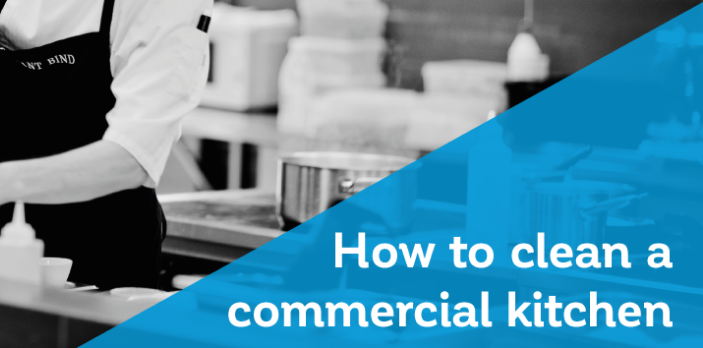Commercial kitchen cleaning
How to Clean a Commercial Kitchen (and keep it clean) | The Teknomek Guide
When running any kind of commercial food-related business such as a restaurant, catering or food preperation business - some of the most important aspects of the management of the operation are the cleanliness, hygiene and safety of the kitchen.
Keeping a kitchen clean is about having a number of jobs which need doing at various intervals, as well as the correct building and resourcing of the environment. Food handling training is vital so that staff know what to do, how to do it and who to speak to if they have questions or concerns.

- Day to day work of a cooking shift
Grills should be wiped if there is a change from red meat to poultry or vegetables - this regular cleaning is vital for food saftey. Chopping or cutting boards should be replaced regularly and all areas should be wiped down as the shift continues. It is also important that bins are emptied as necessary and cleaned with a sanitizer.
- After a cooking shift
When no food is being cooked, it is important to clean the kitchen from the previous food preparation, as well as getting ready for the cooking to re-start.
Preparation tables must be wiped down and cleaned with a sanitizer and cutting boards must be thoroughly cleaned and replaced. Used cloths must be placed in a basket for laundry and stained aprons and jackets must also be put to one side for washing. Any floor mats must be cleaned and all floor areas should be swept and mopped. Utensils should all be washed and any walk-in refrigerators should be swept of debris.
- Knowing who does what
Every commercial kitchen should have a detailed list of all jobs to be carried out. They should be split into daily, weekly, monthly and yearly lists. As an example, the monthly cleaning list would include tasks such as wash walls and ceilings, clean freezers and check First Aid stocks.
- Kitchen surfaces
Hygiene rules govern the kind of surfaces which are permitted in a commercial operation. Preparation and work surfaces must be stainless steel. Walls and ceilings must be painted to a certain specification and there must be no cracks in them.
- Training
All staff must be trained to the required standard for the environment they work in and the level of management they hold. Accredited qualifications must be taken where necessary and these must be kept up to date. This will mean that staff are aware of areas such as food handling, illness, stock rotation and reporting of accidents and incidents.
- Laws and Regulations
There are many laws, regulations and guidelines which lay out how to keep a kitchen safe and clean. It is imperative that the owner knows these rules and that they are carried out, as food hygiene inspections are thorough. Those inspections which highlight issues can carry a fine or the closing down of an establishment.
Running a commercial kitchen is one which takes a great amount of planning and organising. Equipment, resources and staffing are all key elements to manage, but if done efficiently will see a hygienic and safe environment to work in.


